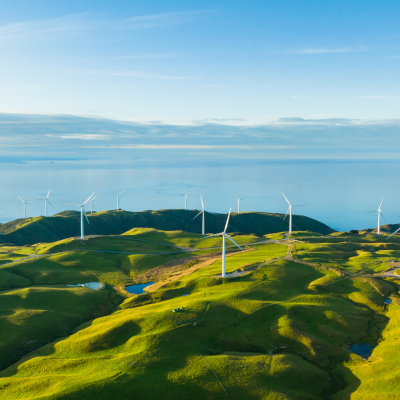Recent moves by several governments to halt export of carbon credits have hindered new investment in carbon project development and prompted changes in business strategy, Kelvin Fu, co-founder and managing partner with Gunung Capital said in an interview with S&P Global Commodity Insights.
Singapore-based Gunung Capital, an asset management company with businesses in steel, cement and carbon, initially planned for direct investment in projects that generate carbon credits, but these plans are on hold due to “regulatory uncertainties”.
Fu said the company, which is the largest shareholder in one of Indonesia’s biggest private steel companies, is now diversifying its investments along the rest of the carbon value chain, such as carbon emissions monitoring, reporting, and verification, or MRV, and tech-removal credits that face fewer policy risks.
In recent months, at least four countries have banned, or announced plans to ban the sale of carbon credits generated locally to foreign markets, including Indonesia, Papua New Guinea, Honduras, and India. This raised concerns among carbon project developers, carbon credit suppliers and buyers as to whether more countries will follow suit and limit market access.
“We are actually putting some of our investment plans on hold until there’s more regulatory certainty,” Fu said, adding that, 6-9 months ago, his company was evaluating several nature-based, REDD+ carbon projects based in Indonesia, but will now need to reevaluate the situation.
REDD+ projects aim at reducing emissions resulting from deforestation and forest degradation.
“I would say that there’s still a lot of confusion. In fact, I was on a call with several friends who are involved in some of the carbon projects yesterday, and all of them had the same consensus,” Fu said. “To invest in a large amount of carbon offsets, we are actually very exposed to the regulatory risks.”
Regulatory overhang
Fu said that while carbon investments by large multinational trading houses may look substantial, they are still relatively small when compared with their commodity portfolios; but smaller market players like Gunung Capital are more vulnerable to regulatory headwinds.
Currently, most internationally traded carbon credits are issued by carbon registries like Verra’s VCS and Gold Standard.
“I think the national ones [registries] will dominate in the end,” Fu said. “Conceptually, considering that governments are now starting to look at carbon assets as their national assets, I think governments have to set up their own national registries,” he added.
Fu said regulatory uncertainty had become “an overhang on carbon credit prices and trade volumes” and his strategy to hedge policy risks was to invest in tech-removal credits like carbon capture and storage, or CCS, and companies that provide MRV services.
Technology like CCS is crucial for decarbonizing industrial sectors, and such credits are also subject to fewer regulatory uncertainties. “These [projects for tech-removals] are mostly privately funded projects. These are commercial capital, so the government can’t really nationalize corporate assets,” Fu said.
Tech-removal credits are priced at around $200/mtCO2e, despite giants like Microsoft having purchased a large bulk of them when most companies cannot afford to do so. Fu said Gunung plans to start with small-scale investments and inject more capital as technologies scale up and realize economies of scale.
He said it is also crucial to build up carbon MRV capabilities, especially domestic capabilities within Indonesia, to overcome information asymmetry in the carbon market, and cut unreasonably high “middleman’s margins”.
Cross border carbon tax
On the supply side, Fu said Indonesia has great potential to develop nature-based carbon credits but there are fewer than 10 approved domestic project developers because of the layers of government approvals and complex legal issues involved in setting up a project.
On the demand side, he said that local carbon offset demand is minimal, because there are no incentives to do so.
“The $2/mt carbon tax is very low, and it’s not even implemented yet,” Fu pointed out.
He also said the carbon border adjustment tax being planned by the EU on high carbon intensity imports, is one of the catalysts driving Gunung Capital to diversify its investment portfolio.
He thinks that the US may adopt a similar mechanism to push exporters in developing countries to decarbonize, while China may also exert pressure on suppliers from other emerging markets, making this another regulatory risk for companies to content with in the future.
“The Chinese government is very serious about their net zero target. They are driving a lot of local companies to invest very heavily to go green,” Fu said. “How can you have another producer in the emerging market just sell cheap product?”
“If we don’t change our current operation, that market will soon be closed to us,” Fu added, referring to the risk of becoming less competitive due to carbon taxes.
“The earlier we understand our carbon footprints and the decarbonization strategies, the more competitive we will be in the future,” Fu said. “I think Indonesia will try to give more regulatory certainty, and try to push, at least, the initial carbon tax.”
As of Aug 17, S&P Global Commodity Insights assessed nature-based carbon credit price was at $8.2/mtCO2e.
This article was published on www.spglobal.com with the title “INTERVIEW: Policy risks disrupt investment in carbon project development – asset manager”














